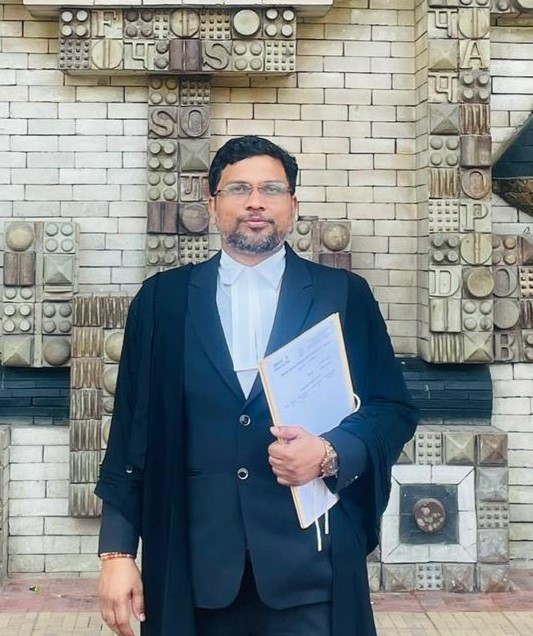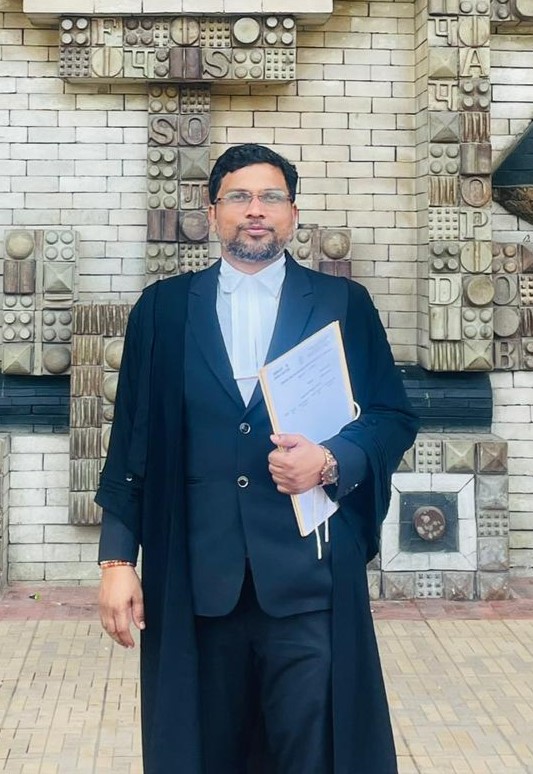Divorce Rules in India: Everything You Need to Know Marriage is a blessing. A successful marriage means falling in love with the same person many times. But sometimes this marriage does not work and turns into a divorce matter. But the divorce process in India takes work. This is a very complex place where one needs to understand the legal framework. India is a first country, many religious people stay here, and every reason has different laws. The divorce process involves legal and emotional steps That depend on the documents and the mental issues of both parties. Sometimes the divorce process is also held outside of the court and the lawyer can ensure that all the work is done under the legal process. So the environment of a lawyer in the divert process is very important and this blog will cover the key specs of divorce rules in India. Understanding Personal Laws As I mention earlier India is a country of different religions. So the divorce process also works differently for every religion. Some of the personal laws are: 1. Hindu Law Divorce among Hindus, including Buddhists, Jains, and Sikhs, is governed by the Hindu Marriage Act, of 1955. This act allows the Hindus to grant the divorce and also helps to get the negotiations. 2. Muslim Law Muslim divorce is based on Islamic principles and is governed by The Dissolution of Muslim Marriages Act, 1939 and customary practices. This also involves several factors like the Talak or the Khula and the mutual agreements. 3. Christian Law For Christians, the Indian Divorce Act, of 1869, is applied to them. This act also involves getting the result of adultery, cruelty, desertion, and other mental and physical abuse. 4. Secular Law This comes under the Special Marriage Act, of 1954. This act allows the individual to take their divorce when the two parties are from different religions. This law ensures a safe passage for both parties. Procedure for Divorce The divorce process is complex and one needs to understand some steps for going to court. The divorce process in India generally involves the following steps: 1. Filing the Petition A divorce petition is needed to be filed in the family court. The petition must have the requirements and the legal notices to grant the divorce. This needed to be written in a clear form. 2. Sending Notice The opposition party will have the divorce notice. This document needs to also mention the details of the divorce and it also needs to pursue the clear intention of the divorce. 3. Response by the Respondent The respondent’s agreement is also important for the divorce. If the respondent does not want to sign on the papers then this will come under the negotiation process. At that time that trial will go for both the parties. 4. Reconciliation Period The code will decide on a reconciliation process. This process will also legal actions like both the parties staying separately and joining the counselling to dissolve the marriage. 5. Evidence and Arguments Both parties need to present evidence and arguments to support their claims. The documents should be relevant to the case and these documents will have to clear the intentions of the divorce. After the documents are verified and the arguments, the court will give the final judgement. This judgment will also involve the monetary or financial disbursement. Why Choose Us So understanding the legal work and filing the petitions is not easy work. A lawyer can ensure that all the legal work is favours for the client. We are the Best Lawyers in Delhi and allow us to handle your divorce case. Our experienced team can handle the legal work and set you free. Please feel free to have a deal with us.
Best Family Matters Cases Lawyer in Delhi
Family Dispute Resolution Articles Child-Related Articles Marriage-Related Articles
Best Divorce Lawyer in Delhi
How a Lawyer Handles a 304B Case The most disgusting and painful death is the dowry death. Section 304B of the Indian Penal Code introduces various legal provisions for dealing with dowry death cases. This law allows both the bride and groom’s family to prove their case under the legal provisions. In this blog, we will cover all the details regarding section 304 B’s case and how a Lawyer handles the case. What is Section 304B So what is section 304B? This section gives the freedom of the both bride and groom’s family to present the case in court. This section deals with the dowry-related death cases. According to this section, if a woman dies under some suspension events within seven years of marriage then this case indicates the woman died for physical violation over the dowry demand. The husband and the family members are suspected to be responsible for the death. This law is harsh and designed to protect women from dowry-related violations. Sometimes the bride’s family misuse this law to make the groom’s family guilty. This law also allows the accused to prove their case in court. The evidence and the testimonials of the witness are also important in this case, sometimes the neighbours also help to solve the case by providing valuable information. Role of a Lawyer in 304B Case Handling the 304B case needs proper planning and legal information to present the case in court. This is a serious issue and the evidence and the documents are important. 1 Initial Consultation Every case needs consultation with the victim and the accused. The lawyer needs to listen to all the details of the case whether the woman is forced for dowry or any other circumstances that lead to the death of the woman. The lawyer also navigates all the stories given to them and the evidence. This helps to understand the strength of the case. For the accused family, this consultation process is really important. The lawyer makes understand them the legal action that is going to be applied to them and the possible way to get out. A lawyer can spot the best way to make the case strong for the accused if the case is false. The evidence and the medical report also help in this stage. 2. Gathering Evidence This is the most important step for the case. The post-mortem report here plays a big role as it shows the death is natural or not. The lawyer also called data like the sms, phone call recordings, and emails to navigate if there were any dowry demands made or not. The neighbour’s witness and the character analysis of the victim’s family and the accused family also help to prove the case in court. 3. Presumption of Guilt This is the unique aspect of the criminal case. This means the accused family and the husband are guilty of the death of the woman. A lawyer knows the strategy to defend the accused and the family in the case. They provide evidence that the death is normal and is not related to Dowry. They can cross-check the opposition witness to create a good profile of the accused. A good character analysis of the accused can give a better impression on the jury. The closing statement of the lawyer also matters, in this case, to give an impression on the Judge. This also helps to win the argument and the case. Sum it Up With So section 304B is the case that allows both the accused and the victims to present their position on the court. The best lawyers in Delhi know how to prove the case for the client in court with all legal provisions. It is always advisable to hire a professional lawyer for this case, as it needs a lot of documents and evidence.
Best Family Matters Lawyer in Delhi
Domestic violence remains one of India’s most pervasive and persistent human rights issues. Despite significant legal frameworks and efforts to protect individuals, particularly women, domestic violence continues to thrive in Indian households across socioeconomic strata. This article explores the nature, legal responses, societal challenges, and solutions surrounding domestic violence in India. 1. What is Domestic Violence? Domestic violence refers to any form of physical, emotional, sexual, or economic abuse within a domestic setting, such as in marriage or family. It can include behaviors that seek to intimidate, humiliate, or control a partner or family member. Domestic violence affects not only women but also men, children, and the elderly. However, women are disproportionately affected by domestic violence in India due to deep-seated patriarchal norms. 2. Legal Framework in India India has several laws aimed at addressing and curbing domestic violence. The most notable among them are: Protection of Women from Domestic Violence Act, 2005 (PWDVA) The PWDVA is a comprehensive piece of legislation designed to protect women from domestic violence. The law defines domestic violence broadly to include physical, emotional, sexual, and economic abuse. It allows women to seek protection orders, residence orders, and monetary relief from the court. The key provisions of the PWDVA are: Indian Penal Code (IPC), Section 498A Section 498A of the IPC criminalizes cruelty by a husband or his family towards a wife. It includes any willful conduct that drives a woman to suicide, causes grave injury, or constitutes harassment for dowry. If convicted, the accused can face imprisonment for up to three years. Dowry Prohibition Act, 1961 Although not specifically about domestic violence, this Act aims to prevent the practice of giving or taking dowry. Dowry harassment is a major contributor to domestic violence in India. Family Courts The establishment of family courts across India provides a forum for the resolution of marital disputes, including cases of domestic violence. These courts can grant divorce, child custody, and maintenance orders, which are often linked to incidents of abuse. 3. Statistics and Reality Despite the existence of strong legal protections, domestic violence remains underreported in India. Several factors contribute to this: According to the National Family Health Survey (NFHS-5) conducted in 2019-2021: 4. Challenges in Tackling Domestic Violence 5. Government and NGO Initiatives The Indian government, along with various non-governmental organizations (NGOs), has initiated several programs and campaigns to address domestic violence: 6. Role of Society Changing societal attitudes toward domestic violence is crucial in eradicating this problem. Initiatives should focus on: 7. Conclusion Domestic violence is a critical issue in India that requires urgent attention. While the legal framework is strong, better implementation, support systems, and a shift in societal attitudes are essential to bring about meaningful change. Empowering women, raising awareness, and involving communities in addressing domestic violence can pave the way for a safer and more equal society.
Best Lawyer For Divorce Cases In Delhi
Divorce marks the legal dissolution of a marriage and is often accompanied by emotional and financial challenges for both parties involved. While each divorce case is unique, the process generally follows a legal framework that aims to ensure fairness in matters such as child custody, alimony, property division, and financial settlements. This article explores the key aspects of divorce cases, the legal process involved, common challenges, and coping mechanisms for individuals going through a divorce. Understanding Divorce Laws Divorce laws vary from country to country, but the central idea remains the same: to provide a legal pathway for spouses to end their marriage while ensuring a fair distribution of assets and responsibilities. In most legal systems, there are two primary types of divorce: Grounds for Divorce The legal reasons for filing a divorce, known as “grounds for divorce,” differ depending on jurisdiction. Some common grounds include:
Best Divorce Lawyer in Delhi
Divorce can be one of the most challenging and emotional experiences in a person’s life. It’s a legal process that dissolves a marriage and addresses various issues, such as asset division, child custody, alimony, and more. Understanding the divorce process can help individuals navigate this difficult time more effectively. This article provides a comprehensive overview of divorce cases, the types of divorces, the legal process, and key factors to consider. Types of Divorce Divorce cases can vary greatly depending on the circumstances of the couple. Here are the most common types: The Divorce Process The divorce process can be complex and varies by jurisdiction. However, the following steps provide a general overview: Key Issues in Divorce Cases Divorce cases often involve several critical issues that must be resolved: Considerations Before Filing for Divorce Alternatives to Divorce Before opting for divorce, some couples consider alternatives: Conclusion Divorce is a complex and often emotionally charged process that involves numerous legal, financial, and personal considerations. Understanding the types of divorces, the legal process, and the key issues involved can help individuals navigate their divorce cases more effectively. Seeking legal advice, prioritizing the well-being of children, and considering alternatives may lead to a smoother transition during this challenging time.
Best Divorce Lawyer in Delhi.
Divorce Law and Procedures Divorce and Family Law Divorce Lawyer Specializations Divorce Lawyer Ethics and Conduct
Best Divorce Lawyer in Delhi.
Divorce and Separation Child Custody and Support Family Violence and Abuse Elderly Care and Support Special Needs and Disability
Best Divorce Lawyer in Delhi
Divorce cases involve the dissolution of marriage, requiring careful consideration of emotional, financial, and legal aspects. Types of Divorce Cases: Divorce Case Procedure: Grounds for Divorce: Divorce Laws and Regulations: Divorce Case Judgment: Divorce Case Statistics: Divorce Case Support Services: Common Divorce Case Mistakes: Divorce Case Fees: Divorce Case Resources: By understanding divorce cases and procedures, individuals can navigate complex emotional and legal issues. Sources: Additional Resources:
Family Matters Cases Lawyer in Delhi
Family matters cases involve disputes related to family relationships, marriage, and child custody. Here’s a comprehensive guide: Types of Family Matters Cases: Family Matters Procedure: Family Matters Laws: Family Court Procedure: Family Matters Documents: Family Matters Fees: Tips for Family Matters Cases: Common Family Matters Mistakes: Family Matters Resources: Family Matters Judgment: By understanding family matters cases and procedures, individuals can navigate complex legal issues and ensure justice. Sources: Additional Resources:





